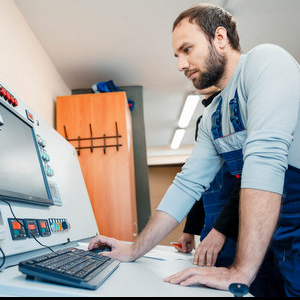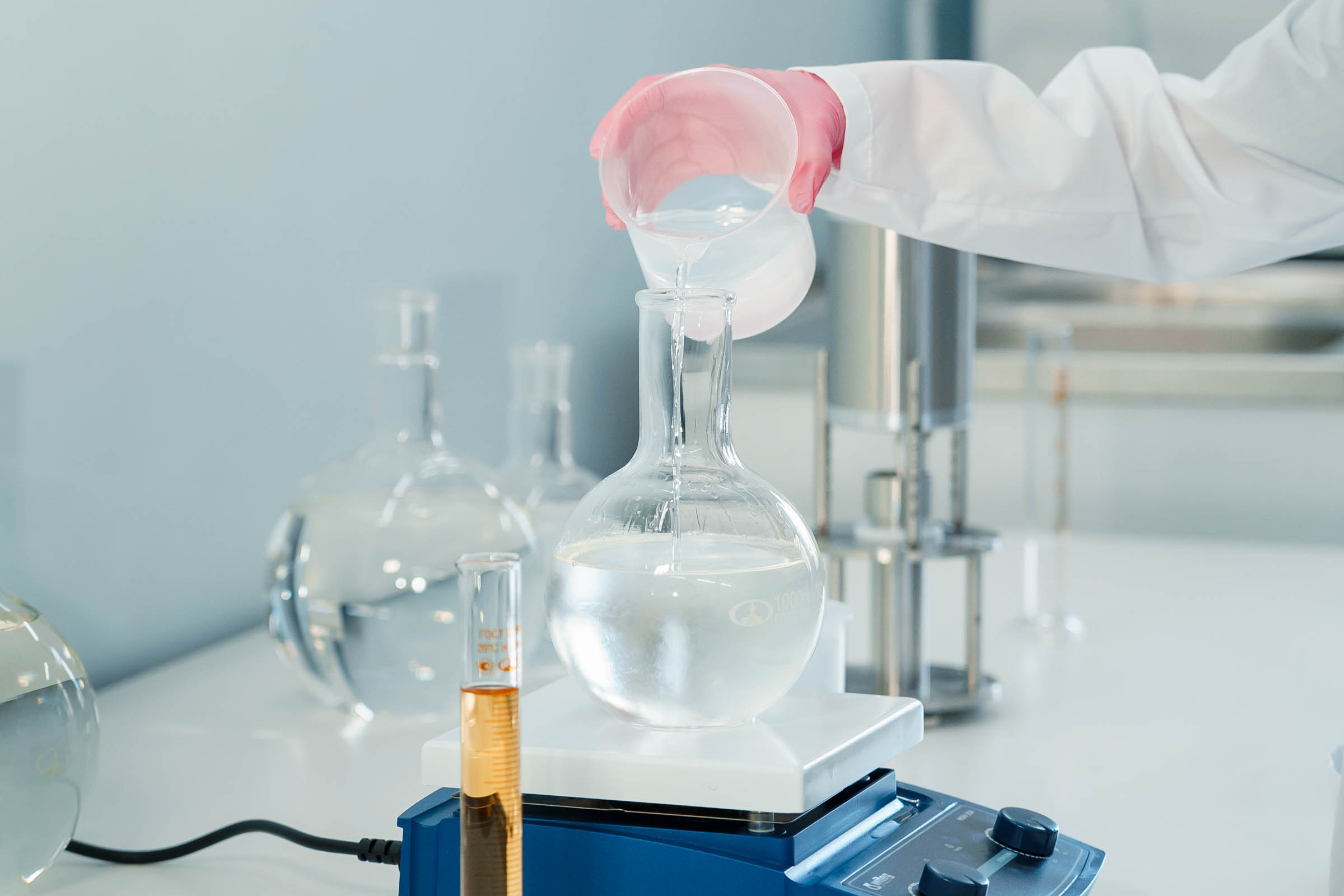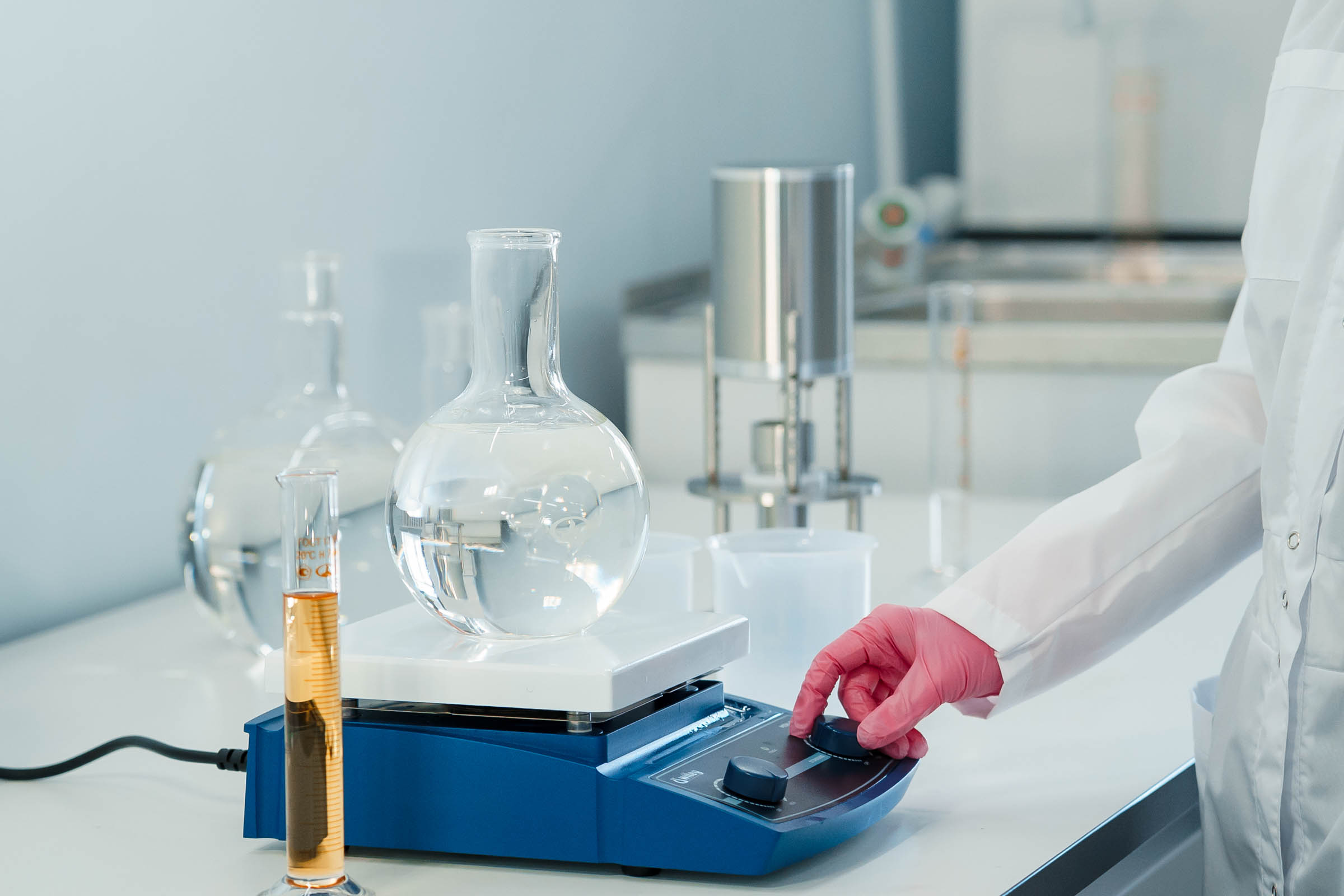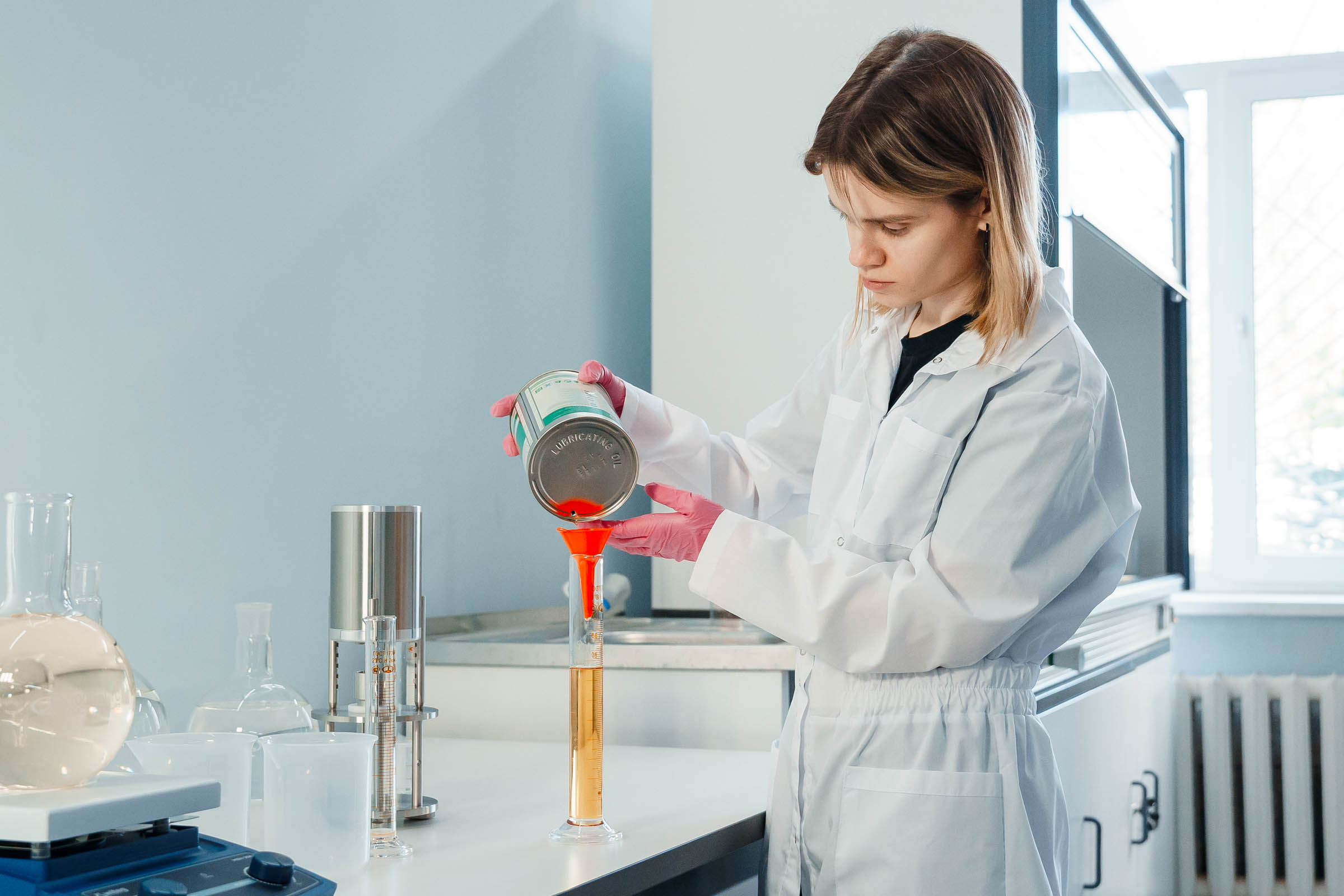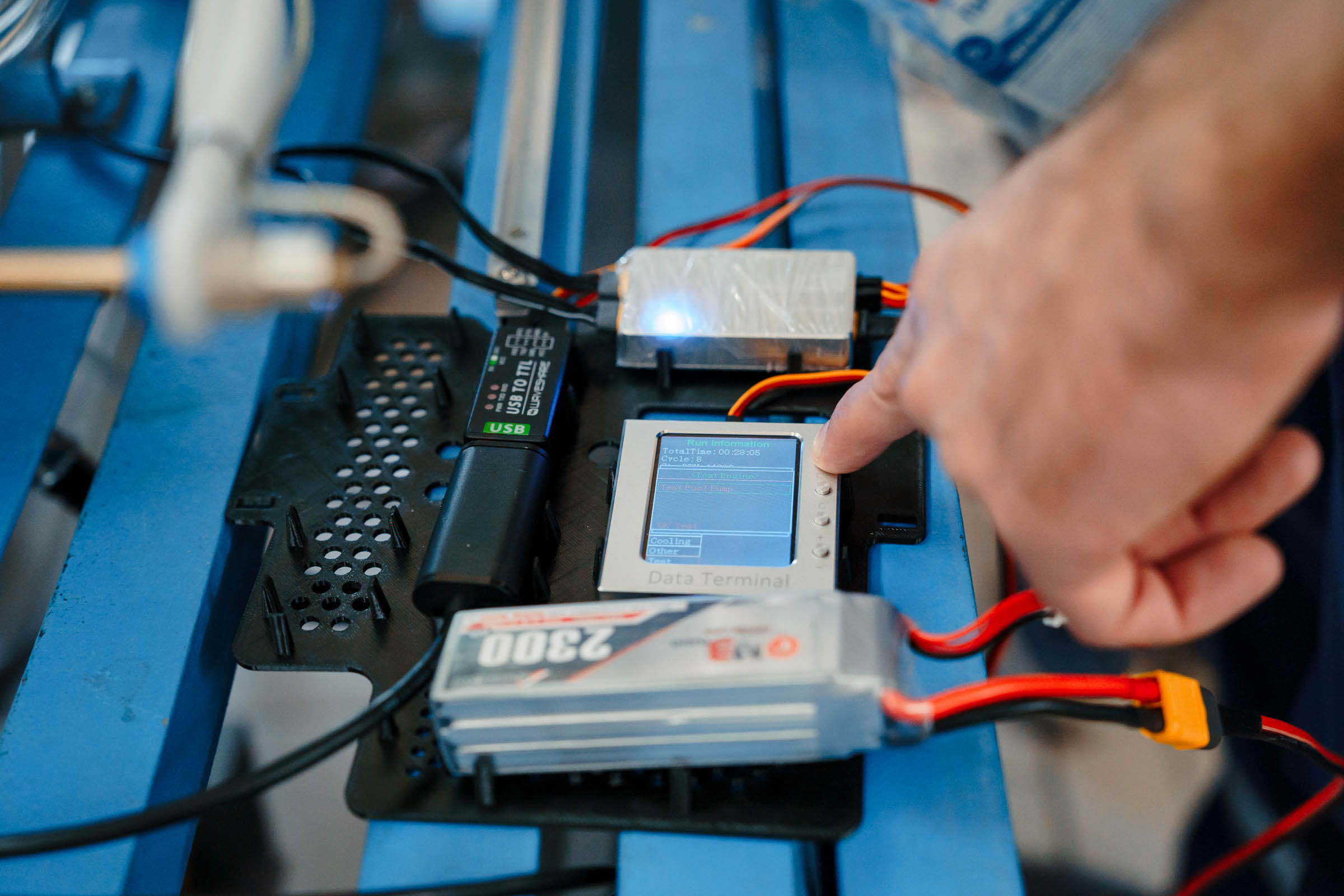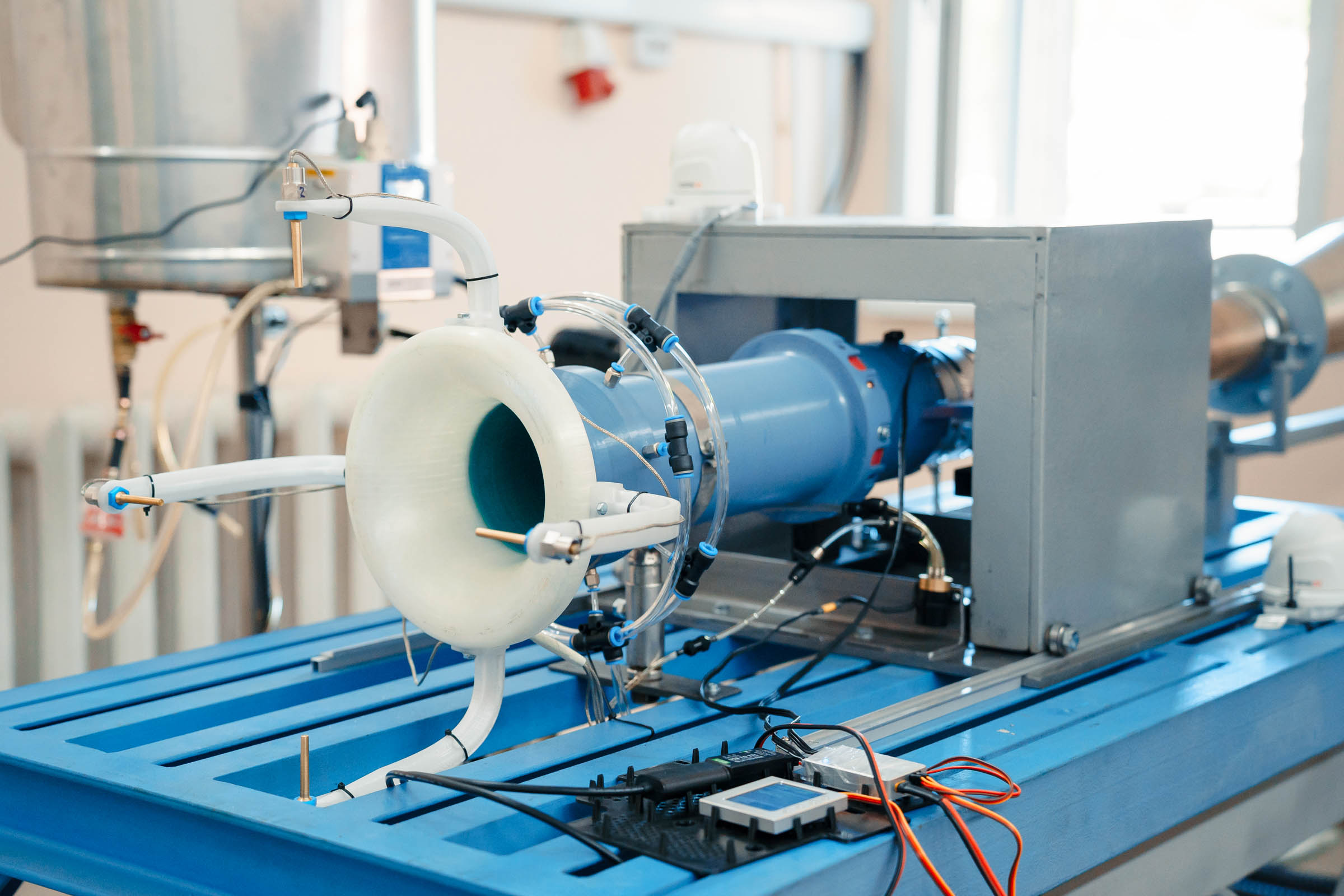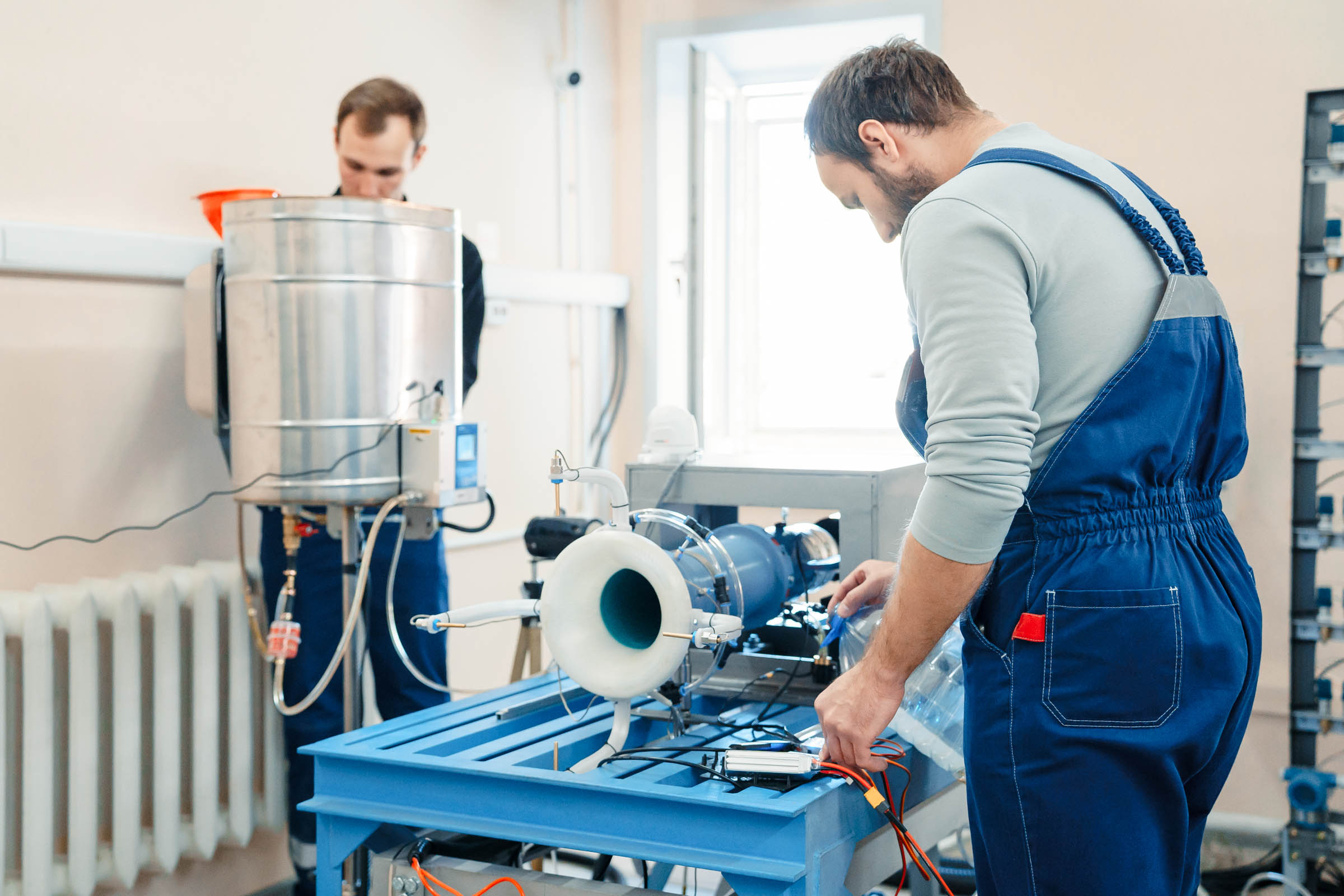Samara University’s scientists has begun large-scale tests of biofuel mixtures consisting of aviation fuel and various bio-components added for reducing harmful emissions into the atmosphere. In course of the tests to be scheduled to last over seven months, scientists will experimentally detect the impact of the biofuels on engine performance, which will allow them to find the most efficient and eco-friendly biofuel mixtures and work out the recipe for optimal fuel of the future. The tests are conducted on small-sized gas-turbine engines (SSGTE), including one of their own design (SSGTE “Kolibri”). Previously, similar experiments with biofuel mixtures haven’t been conducted on SSGTE.
“The main goal of our project is determining the effect of bio-additives on the engine parameters, such as thrust, fuel consumption and eco-friendliness. We want to find optimal compositions of mixed fuels that will make it possible to maintain good engine performance while reducing the negative impact on the environment. This work continues our research in determining properties of both individual biocomponents and their mixtures with kerosene, which we carry out within the framework of the grants from the Russian Science Foundation,” shared Ivan Zubrilin, Head of the Youth Research Laboratory “Power Facilities.”
Experimental research is carried out on the specially equipped test bench in the University’s laboratory. The engine is started on fuel with certain biocomponents, and the measuring equipment records a lot of various indicators of work processes.
“At this stage, properties of mixed fuels and their effect on parameters of the small-sized engine have still been investigated, but in future, it is planned to conduct tests on burner devices and combustion chambers of the engines to be used in civil-aviation aircrafts; moreover, we are ready to conduct the research for civil-aviation engines designed by JSC “ODK,” such as PD-8, PD-14, PD-35, or the promising gas generator with its thrust of 24 metric tons, which was worked on at our University together with PJSC “ODK-Kuznetsov.” This is the current global trend: in aviation, eco-friendly fuel will displace conventional kerosene, and we need to prepare for this. At the global level, the first steps in this area have already been taken. Carbon units (the carbon tax) are expected to begin being introduced as early as 2025–2026. By 2050, the minimum share of sustainable fuels is set at the level of 35%. This initiative has already been joined by over 120 countries”, stressed Ivan Zubrilin.
For the first experiments, various alcohols, ketones, aldehydes and esters have been selected as biofuel additives. Standard aviation kerosene is used as the base fuel. According to theoretical calculations, addition of these bio-components to the fuel should significantly reduce harmful engine emissions, in particular, soot emissions. The test results will show exactly how much they will be reduced, while maintaining the necessary power and efficiency of the engine.
“In course of the experiments, we plan to increase the ratio of the additives in the fuel mixture to 20–25%, and for some components — up to 50%. The entire test cycle is expected to consist of several dozen experiments and will last until about the end of this year. Selecting a fuel component is an uneasy complex task, the solution of which must consider not only environmental and technical aspects of the entire fuel life cycle, but also economic and ethical ones. Therefore, in our research, we do not focus on one specific component. It is planned that our results will provide additional information for making global decisions,” noted Ivan Zubrilin.
Small-sized gas-turbine engines with maximum thrust of 220 N (Newtons) are used for testing. The engines are rather compact and lightweight, with their length of about 30 cm, diameter of about 12 cm, and weight of 2 kg. These compact mini-engines can be used for designing mobile power facilities and small high-speed aerial vehicles. Within the research, Samara scientists collaborate with their colleagues from Central Institute of Aviation Engine Engineering (Moscow), Perm National Research Polytechnic University, and Tomsk Polytechnic University.
In future, results of the experiments will be included in the database of the software package being created at Samara University, for calculating the effect of various types of biofuels and other promising aviation fuels on parameters of aircraft engines. The development will be able to determine in advance and predict changes in duration, range and flight cost price if the aircraft with a certain engine configuration is refueled not with conventional aviation kerosene, but with one or another eco-friendly fuel. The electronic eco-fuel “menu” can be useful to designers and operators of aviation equipment during gradual transition of the domestic aviation industry to environmentally friendly fuels, including cases of certifying domestic aviation equipment for the use of biofuels.
For reference:
- Biofuels are fuels made of plant or animal raw materials, from waste products of organisms or organic industrial waste.
- Financing of the research and testing is carried out within the framework of operation of the Youth Research Laboratory “Power Facikities” of the National Project “Science and Universities.”
